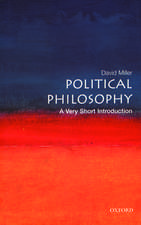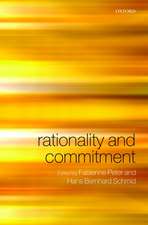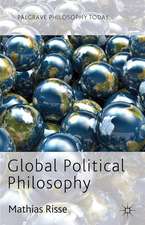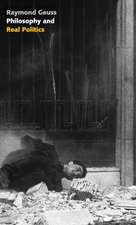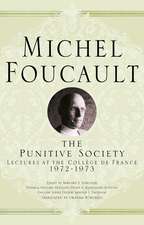Marx's Discourse with Hegel
Autor N. Levineen Limba Engleză Paperback – 2012
| Toate formatele și edițiile | Preț | Express |
|---|---|---|
| Paperback (1) | 643.16 lei 6-8 săpt. | |
| Palgrave Macmillan UK – 2012 | 643.16 lei 6-8 săpt. | |
| Hardback (1) | 710.56 lei 6-8 săpt. | |
| Palgrave Macmillan UK – 21 feb 2012 | 710.56 lei 6-8 săpt. |
Preț: 643.16 lei
Preț vechi: 756.65 lei
-15% Nou
Puncte Express: 965
Preț estimativ în valută:
123.07€ • 128.84$ • 101.83£
123.07€ • 128.84$ • 101.83£
Carte tipărită la comandă
Livrare economică 08-22 aprilie
Preluare comenzi: 021 569.72.76
Specificații
ISBN-13: 9781349332793
ISBN-10: 1349332798
Pagini: 360
Ilustrații: VIII, 360 p.
Dimensiuni: 152 x 229 x 20 mm
Greutate: 0.49 kg
Ediția:1st ed. 2012
Editura: Palgrave Macmillan UK
Colecția Palgrave Macmillan
Locul publicării:London, United Kingdom
ISBN-10: 1349332798
Pagini: 360
Ilustrații: VIII, 360 p.
Dimensiuni: 152 x 229 x 20 mm
Greutate: 0.49 kg
Ediția:1st ed. 2012
Editura: Palgrave Macmillan UK
Colecția Palgrave Macmillan
Locul publicării:London, United Kingdom
Cuprins
A Programmatic Excursus Marx's Incomplete Quest The Works of Hegel that Marx Knew Phase One: Hegel and Marx in the Center Phase Two: The Letter of 1837 and the Doctoral Dissertation Phase Three: Marx and the Rheinische Zeitung Phase Four: Marx's Development of Critique and His Delinking from Hegel Phase Five: The Phenomenology of Spirit and the Inverted World of the Bourgeoisie Phase Six: In Defense of Hegel Marx's Mis-Reading of Hegel Marx's Method Bibliography Index
Recenzii
'Levine's work as a whole offers an extraordinarily detailed account of Marx's relations with his great predecessor Hegel, as well as mentors and peers such as Bruno Bauer, Arnold Ruge, Ludwig Feuerbach and, of course, Marx's brother-in-arms, Friedrich Engels. It is a resource no scholar interested in the internal development of Marx's thought is likely to ignore.' - Marx & Philosophy Review of Books
Notă biografică
NORMAN LEVINE is Emeritus Professor and Executive Director at the Institute for International Policy, USA.
In his 1975 book The Tragic Deception Professor Levine broke through traditional interpretations and advanced the theses that major differences separated Marx from Engels. In his 1984 Dialogue Within The Dialectic he re-wrote the historiography of Das Kapital by demonstrating that Marx planned his magnum opus to be two volumes and not three. In Marx's Discourse With Hegel he continues his search for new perspectives in Marx by proving Marx's dependency on Hegelian methodology.
Professor Levine devoted his work to the rediscovery of the original Marx. In this endeavour he was benefited enormously from the research he conducted at the International Institute for Social History, Amsterdam, and the Marx-Engels Gesamtausgabe (MEGA2) at the Berlin-Brandenberg Academy of Sciences. He sees his mission as the supersession of the Cold War Communism of Stalin and Mao and the repositioning of Marx within the Enlightenment traditions of the advancement of human freedom, the identification of a Marx who perpetuated the hope of the French Revolution to establish an expanded post-bourgeois form of democracy. Recognizing the transformations of capitalism effected by the contemporary revolutions in media and technology Levine's mission is to show that only the humanism of the original Marx is capable perpetuating the hopes of mutual recognition and respect for the other.
In his 1975 book The Tragic Deception Professor Levine broke through traditional interpretations and advanced the theses that major differences separated Marx from Engels. In his 1984 Dialogue Within The Dialectic he re-wrote the historiography of Das Kapital by demonstrating that Marx planned his magnum opus to be two volumes and not three. In Marx's Discourse With Hegel he continues his search for new perspectives in Marx by proving Marx's dependency on Hegelian methodology.
Professor Levine devoted his work to the rediscovery of the original Marx. In this endeavour he was benefited enormously from the research he conducted at the International Institute for Social History, Amsterdam, and the Marx-Engels Gesamtausgabe (MEGA2) at the Berlin-Brandenberg Academy of Sciences. He sees his mission as the supersession of the Cold War Communism of Stalin and Mao and the repositioning of Marx within the Enlightenment traditions of the advancement of human freedom, the identification of a Marx who perpetuated the hope of the French Revolution to establish an expanded post-bourgeois form of democracy. Recognizing the transformations of capitalism effected by the contemporary revolutions in media and technology Levine's mission is to show that only the humanism of the original Marx is capable perpetuating the hopes of mutual recognition and respect for the other.

